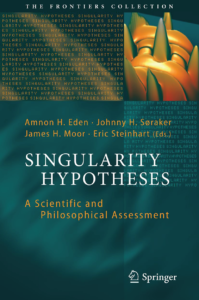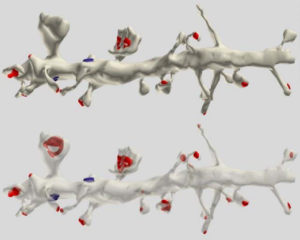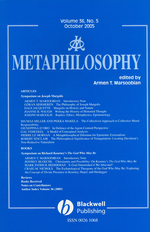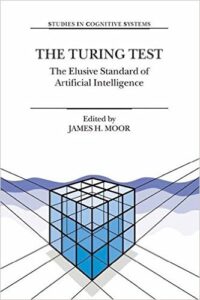Board

Vic Callaghan
Emeritus professor of computer science, University of Essex; president, AAIE; Director, Creative Science Foundation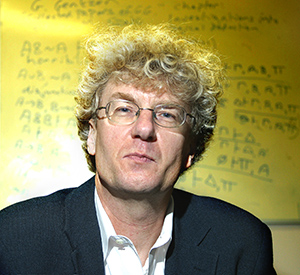
B. Jack Copeland
Professor of Philosophy, University of Canterbury; Director, Turing Archive
Amnon H. Eden
Principal Scientist, Sapience.org; Founder, Moneta Sapiens
James H. Moor
Professor of Intellectual and Moral Philosophy, Dartmouth College
David Pearce
Philosopher; Owner, BLTC Research
Steve Phelps
Lecturer in Computational Finance, Kings College London; Co-founder: Ripple Software Ltd, Victoria Ltd
Anders Sandberg
Senior Research Fellow, Future of Humanity Institute, Oxford University.Sample Publications
Singularity Hypotheses: A Scientific and Philosophical Assessment
Amnon H. Eden, Johnny H. Soeraker, James H. Moor, Eric Steinhart (eds.)…
Whole Brain Emulation: A Roadmap
Anders Sandberg, Nick Bostrom. Technical Report #2008‐3, Future of Humanity Institute, Oxford…
What Is Computer Ethics?
James H. Moor, “What Is Computer Ethics?” Metaphilosophy 16(4):266 – 275 (Oct….
The Turing Test: The Elusive Standard of Artificial Intelligence
James H. Moor (ed.), B. Jack Copeland (chapter author). Springer 2003 Most…
Artificial Intelligence (Encyclopaedia Britannica)
B. Jack Copeland, “Artificial Intelligence”. Encyclopaedia Britannica 15th ed., 2001 Artificial intelligence…
The Philosophy of Computer Science (Stanford Encylopedia of Philosophy)
Raymond Turner, Amnon H. Eden. Stanford Encyclopedia of Philosophy (Winter 2008 Edition), Edward N….
Reports
Unethical Research: How to Create a Malevolent Artificial Intelligence
Sapience Technical Report STR 2016-03 Author: Roman V. Yampolskiy Cybersecurity research involves publishing papers about…
On the Utility Value of Currencies
Notions of value of #currencies such as Bitcoin and the US Dollar presuppose that the…
The Singularity Controversy, Part I
Sapience Technical Report STR 2016-1 Author: Amnon H. Eden ‘The Singularity Controversy, Part I: Lessons…
Energetics of the Brain and AI
Sapience Technical Report STR 2016-02 Author: Anders Sandberg Does the energy requirements for the human…
Our Team

Amnon H. Eden
Principal ScientistAmnon H. Eden is the Principal Scientist of Sapience.org, author of “Codecharts: Roadmaps and Blueprints of Object-Oriented Programs”, editor of “Singularity Hypotheses: A Scientific and Philosophical Analysis, formerly lecturer and Director of Undergraduate Studies at the University of Essex

Carolyn Seet
Director of OperationsCarolyn Seet (EMBA) is a highly competent, versatile finance and operations professional, with over 20 years’ experience with market leaders in London and Singapore. She is a strong builder of effective teams, with a powerful combination of creativity, strategic insight, problem-solving skills to optimise controls and processes.

Tony Willson
Co-FounderTony was a lawyer for 17 years, , and spent 10 years with the Dale Carnegie Organisation, instructing most of their programmes and managing Essex and East London. Tony has founded an award winning outsourcing business mainly aimed at the construction sector and providing training management, health and safety and e-Learning services. He also worked with a US company delivering high-level Negotiating training worldwide.
Contact Us
We want to hear from you!
Send your email to Amnon, Principal Scientist eden@sapience.org


